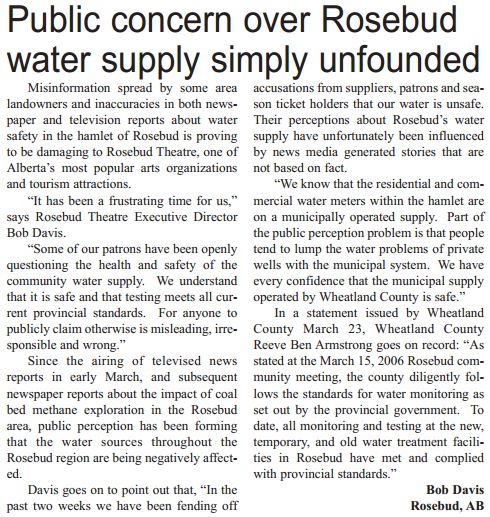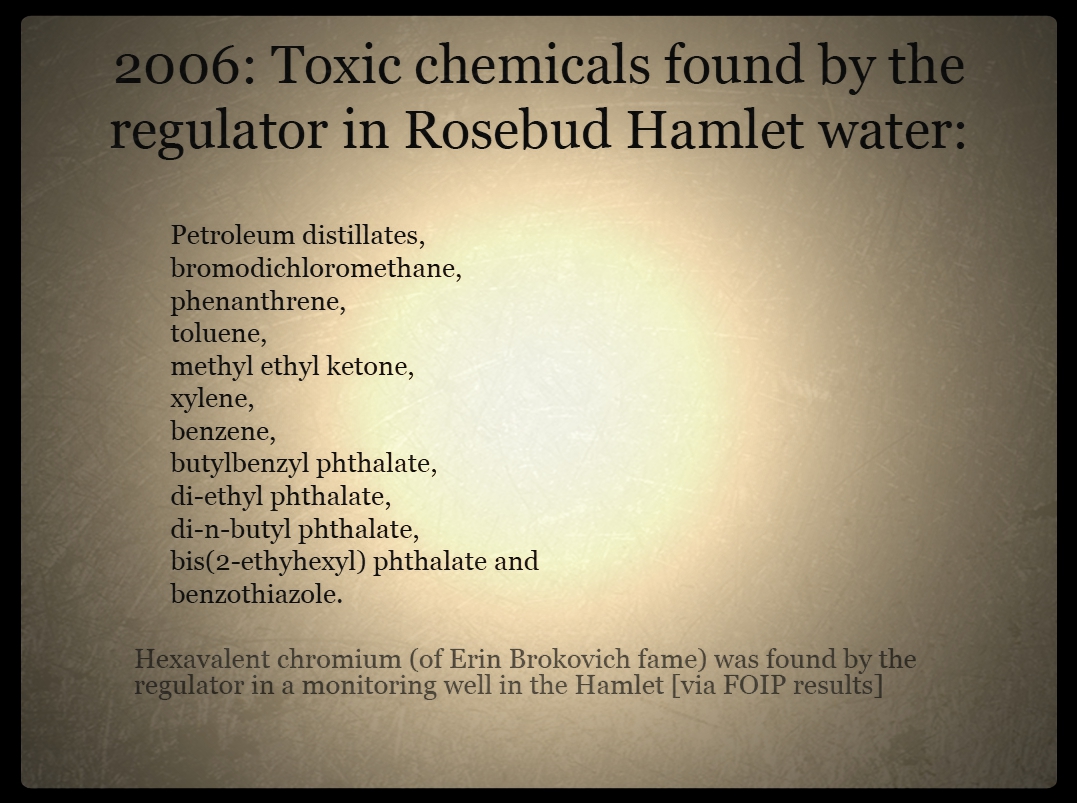EnCana clarifies practices relating to gas completions by Stacy Knull, VP EnCana in Valley Times, April 4, 2006
EnCana tests local water wells before it drills…. Currently, in the Chinook Business Unit, we test wells up to 1000 m from our drilling programs….we have made a hard boundary in our Chinook Business Unit to not complete any wells in coal or sand formations shallower than 175 metres. We made this decision in the spring of 2005, and prior to this time each of our completion teams reviewed the depth of surrounding water wells to ensure completion depths would be safely below the water well depths. Prior to this decision, from 1994 and the spring of 2005, between 40 and 50 natural gas wells (of over 5,000 drilled) were perforated in sand and coal formations above 175 metres. Of these, 17 wells are currently producing gas (as of February 2006) from a number of formations. Of all the wells perforated above 175 metres, approximately 80 per cent were completed for CBM, the rest were completed for conventional sand formations.
[Also in this issue:
NEWS ALERT Water supply for Hamlet of Rosebud Contaminated with Carcinogen Bromodichloromethane by Fiona Lauridsen (resident with contaminated well water), September 15, 2006
ROSEBUD: Last night representatives from Alberta Environment, Wheatland County and the Calgary Health Region issued a “water usage advisory” to the residents of Rosebud, located one hour east of Calgary. The advisory warns residents to use bottled or filtered water due to the presence of a carcinogen in their local water supply: bromodichloromethane. Bromodichloromethane is toxic compound formed as a byproduct of adding chlorine to drinking water. According the US Environmental Protection Agency it is also a common byproduct of coal bed methane production: (See p.[39] Oil and Gas Extraction, Sector Notebook Project, EPA/310-R-99-006) In the last two years EnCana has repeatedly drilled and “stimulated” shallow wells with chemicals around the hamlet for coal bed methane. Several residents outside of the hamlet have lost their safe water after extensive CBM drilling and fracing. Alberta Environment is conducting an ongoing investigation. Just last month Wheatland County and Alberta Environment said the hamlet’s water supply “complied with provincial standards.” [Emphasis added]


